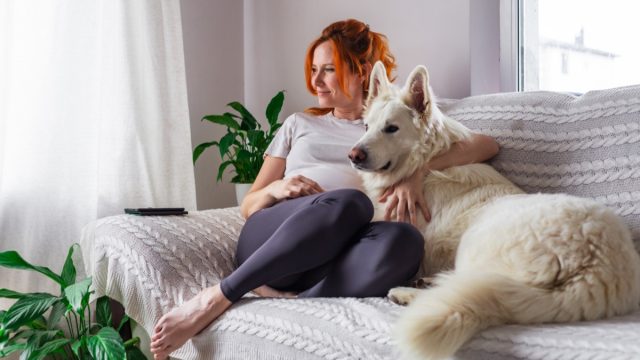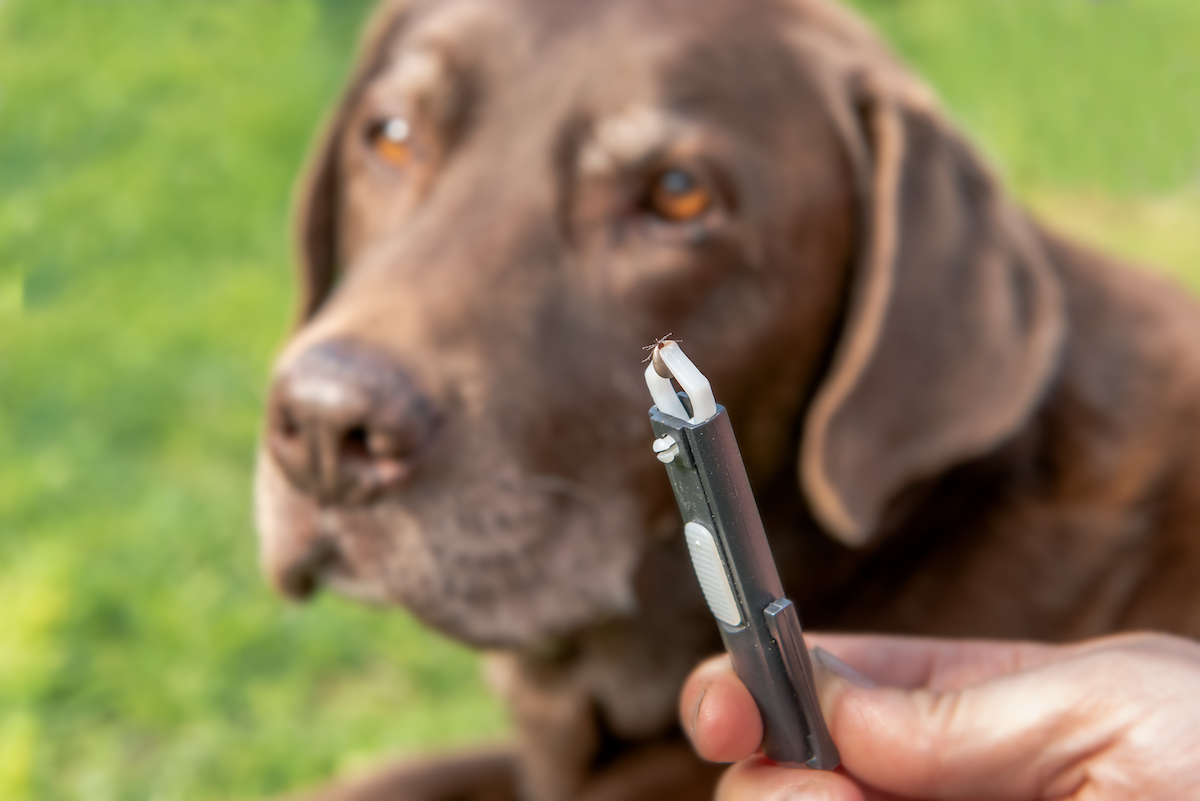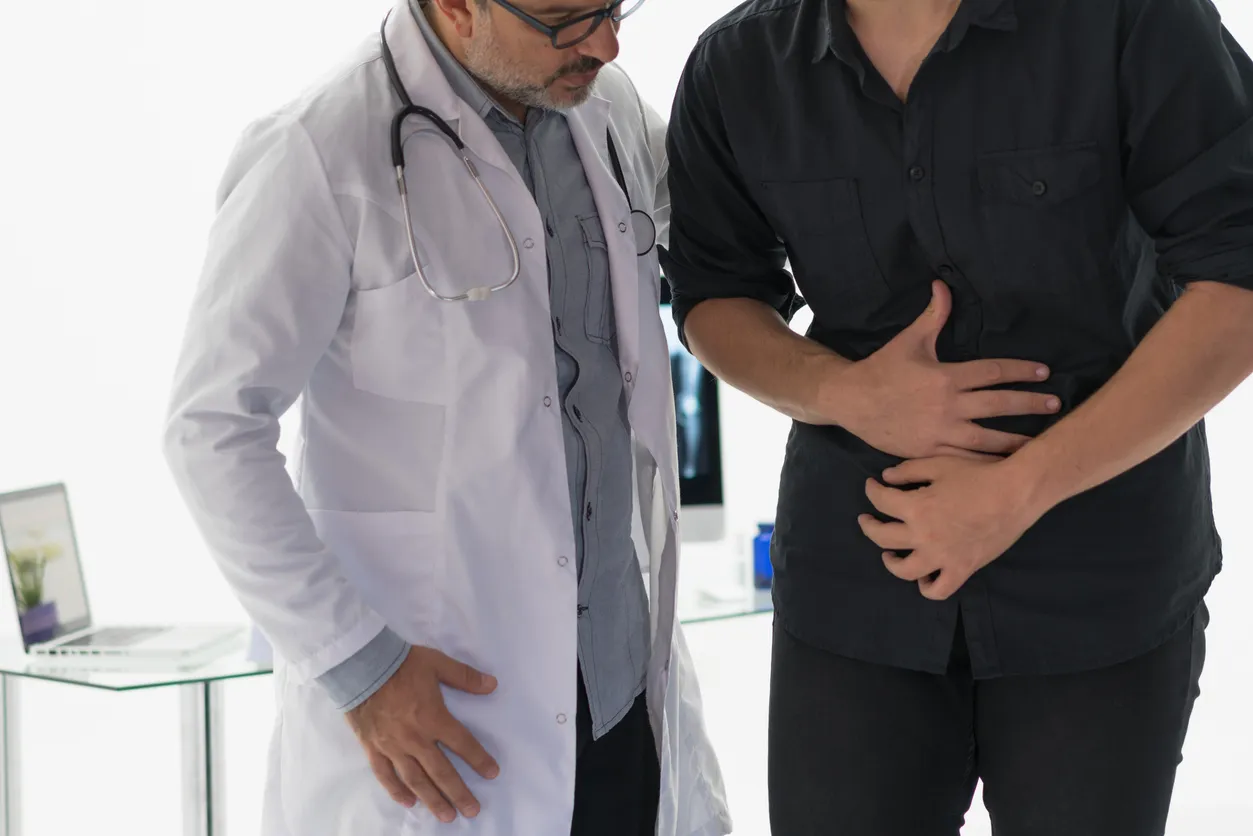What Happens If You Don't Wash Your Hands After Petting a Dog, According to Doctors
Our furry friends can expose us to major health hazards, experts say.

Petting a dog can soothe your soul and may even boost your health, but chances are you're missing a key step after touching your four-legged friend. Experts say it's crucial to wash your hands afterward, and that failing to do so could be putting your health at risk. In fact, a 2009 study found that dogs were more likely to swap germs with their owners through petting than by sleeping next to them in bed.
"In a perfect world, you would wash your hands after every time you touch your pet," says the Centers for Disease Control and Prevention (CDC). Their experts add that the habit is especially important for demographics that are vulnerable to severe illness, such as young children, older adults, and people with weakened immune systems. However, anyone can get sick from the germs passed from dogs to people and everyone should take precautions, doctors and veterinarians say.
Read on to learn the four things that can happen if you don't wash your hands after petting a dog—including one problem that affects more than just you.
READ THIS NEXT: The 10 Most Unique Dog Breeds, According to Pet Experts.
You could pick up a parasitic infection.

Washing your hands after petting a dog is an important step in preventing the spread of parasites, including roundworms, tapeworms, and more, experts say.
"Though dogs' fur is soft and pleasant to touch, it can harbor germs that can potentially affect humans," says Dwight Alleyne, DVM, a Georgia-based veterinarian and a veterinary advisor at betterpet.com. He explains that dogs love to roll around when they're outside, and that parasites in the soil or grass can transfer onto their fur. When you pet a dog, those parasites then transfer from their fur to your hands—and spread from there, he explains.
Zeeshan Afzal, MD, a Texas-based dermatologist and consultant for welzo.com says certain parasites are especially common—fleas, ticks, and mites among them. "Some of these parasites can cause skin infections, rashes, and even serious diseases like Lyme disease and Rocky Mountain spotted fever," he warns.
READ THIS NEXT: 5 Low-Maintenance Dogs You Barely Need to Walk.
You could contract a bacterial infection.

It's common for dogs to carry bacterial infections, some of which are zoonotic, or transmissible to humans. "Dogs can carry a variety of bacteria in their fur, mouth, and intestines, such as Salmonella, E. coli, and Campylobacter, says Afzal. "These can cause gastrointestinal illness, diarrhea, vomiting, and fever."
However, petting isn't the only way you can contract a bacterial infection from your dog: contact with their food, supplies, or feces can also put you in harm's way. That's why you should always be sure to wash your hands thoroughly after handling your dog's food or food bowl, moving their toys, and of course after cleaning up their poop.
You could develop a fungal skin infection.

If a dog has a fungal skin infection such as ringworm, they can pass it on to you when you pet them. In many cases, these types of infections aren't clearly visible in dogs, since their fur covers their skin.
According to the American Academy of Dermatology, washing your hands thoroughly with warm, soapy water can help prevent the spread of such diseases. They warn that "touching or scratching the area with ringworm and then touching another area can spread ringworm from one part of your body to another," but add that "washing your hands well can help prevent this."
For more health news sent directly to your inbox, sign up for our daily newsletter.
Your other pets may get sick.

As it turns out, you're not the only one who stands to benefit from washing your hands after petting a dog. "Washing your hands after petting a dog is also important for the health of other animals," says Ellen Russell, DVM, MPH, a veterinarian and vet consultant at The Malamute Mom.
"If you interact with multiple pets, or visit friends' and family members' pets, it's important to wash your hands in between interactions to prevent any germs from spreading to other animals," she says. "This can help keep other pets in the area healthy and happy, while also protecting your own pet from any possible illnesses."
So, if you're a true animal lover, don't hesitate to wash your hands after touching your furry best friend. By doing so, you'll be keeping yourself—and the other animals you love—much safer.





















